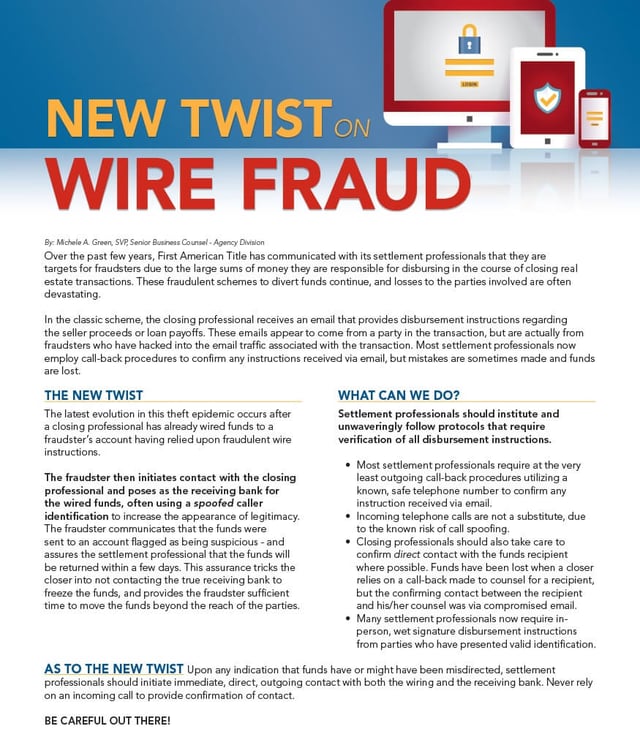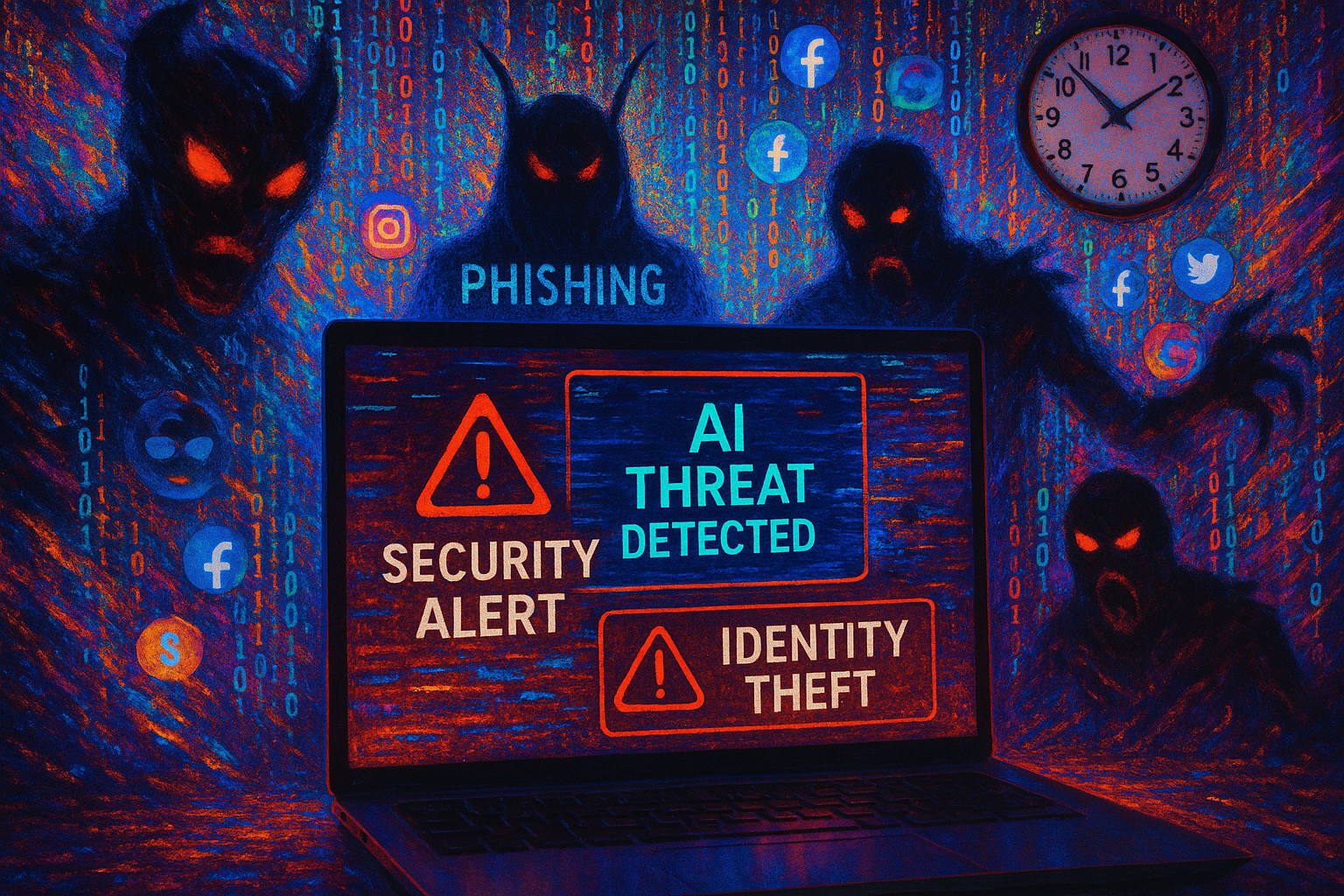5 min read
Meeting the New, AI-Enabled Face of Risk
When we introduced our OmniNet Bridge solution in 2014—known to many of you as My Digital Shield—it represented the next generation of network...

If you want to see the state of innovation in crime around the world, watch what's happening in cyber. Smart and sophisticated criminals everywhere are re-tooling their craft for the greatest opportunity in the history of their profession. The risk of getting caught is low, the reward high, and it's so easy to outsmart 99% of the planet that is still entirely unprepared for what is at hand . And, for what's new in cybercrime, real estate sales is the place to see.

Wire fraud has been a big deal for the real estate sales industry since at least 2014. We've written extensively about it including the Wall Street Banker that made over $50 million dollars a year managing risk and yet transacted a $20 million residence over an AOL email account only to be hacked for the $2 million down payment. This is a great example of why we view what is happening in real estate with cybercrime is a red flag and leading indicator for the rest of us. Consider this:
"Never before has everyone everywhere been more vulnerable to the action of anyone anywhere." Thomas Friedman - from his 2016 book "Thanks for Being Late - An Optimist's Guide to Thriving in the Age of Accelerations."
So, what's next? What's being innovated in crime against the real estate industry that we are bound to see everywhere else before long? Well, wire fraud, along the lines of the $2 million scam we highlight above, has been the real estate industry's greatest cyber risk, and now, as the First American Title company says, there is a new "twist" to the hack. The company explains it this way:
"Over the past few years, First American Title has communicated with its settlement professionals that they are targets for fraudsters due to the large sums of money they are responsible for disbursing in the course of closing real estate transactions. These fraudulent schemes to divert funds continue, and losses to the parties involved are often devastating.
The latest evolution in this theft epidemic occurs after a closing professional has already wired funds to a fraudster's account having relied upon fraudulent wire instructions. The fraudster then initiates contact with the closing professional and poses as the receiving bank for the wired funds, often using a spoofed caller identification to increase the appearance of legitimacy." Michele A. Green, SVP, Senior Business Counsel - Agency Division
Lesson? Never rely on an incoming call for confirmation.
Repeat for emphasis - Never rely on an incoming call for a confirmation of anything that's important.
Here is the First American Title flyer on the matter:
If the cyber scam is happening in real estate, you can bank on it happening in other businesses and professions, and in your personal life too.
Cyber criminals are going to be finding all the clever head-fakes, diversions, and elements of social engineering we would be hard pressed to think up today, to use against us tomorrow and well into the future.
For more about cybersecurity services for Realtors.
What can you do? First, and foremost, especially if you are a Realtor®, get off "free" email. Email is the #1 attack vector for hackers that want your money, and if you are on Gmail, Yahoo, AOL, Hotmail, or any of the public systems, now is the time to "privatize" and take control of the situation. Here's how:

5 min read
When we introduced our OmniNet Bridge solution in 2014—known to many of you as My Digital Shield—it represented the next generation of network...

9 min read
Over the past decade writing these letters, I’ve made it my mission to help you navigate the digital age with confidence and resilience. If I have...

4 min read
For generations, family offices and ultra-high net worth families have mastered the art of estate planning — preserving wealth, ensuring succession,...